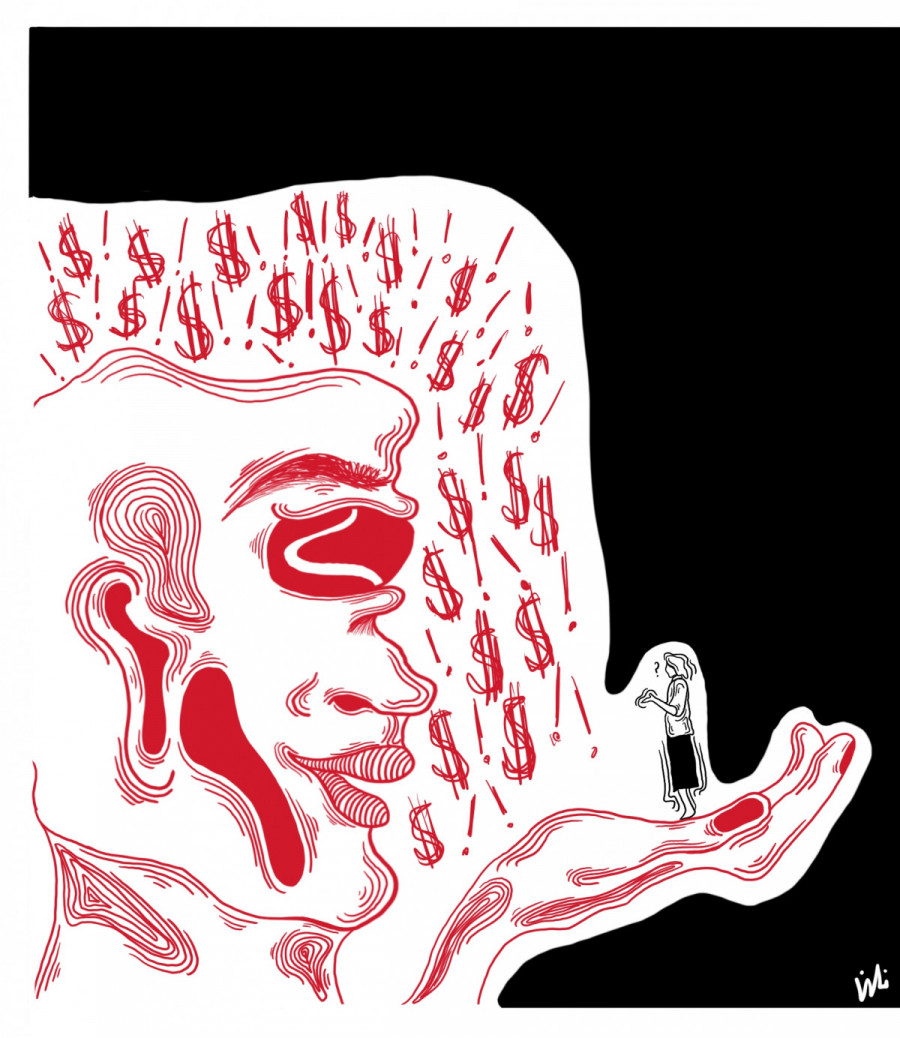Health Care: Not as Generous as you Think
Canadians Lack Awareness of How Expensive Healthcare Can Actually Be
Full disclosure, I’m a senior student; how senior, I won’t say, but I have fillings that are older than most of you.
Fillings are also my segway into dental care, a subset of health care that you must pay for out of pocket.
I know all too well that dental work, beyond simple fillings and extractions, can cost thousands. I sometimes say to my dentist, "the bill hurts more than the drill." However, when a friend told me that a full set of dentures could cost upwards of ten thousand dollars, I was in disbelief.
But then I remembered how 15 years ago, a root canal plus crown had cost me $3,000. And, last year, an estimate for an extraction, some post-extraction work, two implants and a crown added up to $10,000. It dawned on me then that maybe my friend was right about the cost of dentures.
When I asked my dentist about the cost of dentures, they replied with a very evasive, “it all depends.”
“On what?” I asked.
“Well,” they said, “there’s how many teeth must be pulled, what sort of teeth, X-rays, lab costs and whether you want some titanium implants to keep the denture secure.”The total cost was unclear until I was fully committed to the procedure.
I was shocked. This is a basic healthcare item. After all, teeth allow me to chew my food, which directly affects my health. Then comes the self-esteem factor of being able to smile freely.
Since it must seem strange for you to read about dentures–it would have been for me at your age–I'll move on to other, more familiar healthcare services. Physiotherapy, psychological counseling, eye and hearing care, certain vaccinations and a ride in an ambulance are just a few examples. Whether the money comes from your student health plan, employee benefits or is covered by a group insurance scheme, you are still paying for it at the end of the day.
One of the major healthcare items that you must pay for in Canada are prescription medications. Of course, medication can work wonders and save lives, but there are side effects—and not just health-related.
Big Pharma’s “we have a pill for that” has societal impacts too. It’s so much easier to turn to pills than make lifestyle changes. Over the years prescription medications have occupied a larger share of the healthcare space. In the process, this proliferation of pills permits our government to shovel healthcare costs onto already vulnerable Canadians.
Prescription medication costs keep rising and an aging population needs more and more of them. How will people keep up? How will you? Some, like Rhonda Watkins, use expired medication because they can’t afford a new prescription to treat their diabetes. In extreme cases, a person may prefer to die rather than pay for medications that will leave their surviving spouse bankrupt. Personally, I am outraged. Canada projects itself as a caring nation but continues to let this stuff happen.
Even worse in my mind, is how Canada can make amputee Terry Fox a national hero while having ordinary amputees pay for their prostheses. You may not know–I didn't–that prosthetics aren't covered by healthcare and they don’t come cheap. A full prosthetic leg, for example, can cost $50,000 or more and since it must be replaced every 5-6 years, its lifetime cost can be in the low to medium six figures.
Sure, there are provincial support programs but they are income related, difficult to navigate and the cost schedules are out of date. So, if you don't have cash, and a lot of it, you'll have to get by with a wheelchair.
In the United Kingdom where I grew up, prostheses are 100 per cent covered by the National Health Service—as are prescriptions, dental work, eye and hearing care. It’s true the NHS is under pressure but Brits would be in the streets if the government dared to cut it back. Canada’s healthcare coverage has a built-in 30 per cent cutback and the population lacks awareness.
Why does Canada cheap out on healthcare? Is it because many citizens come from low-income countries where healthcare is minimal? In comparison to other places in the world, Canada's healthcare system seems too good to be true. This logic may have been true once, but by now it’s wearing thin. Economies such as China and India have launched their own healthcare and social programs called Modicare. One day, their citizens may have better healthcare (and pension) coverage than they would here.
Does Canada believe that it can get away with its 70 per cent healthcare because many of its citizens have medical and dental coverage through employment group plans? That reasoning is increasingly threadbare. In the dog-eat-dog world of employment, group insurance may not be available or coverage may be capped at low levels. Remember that root canal of mine 15 years ago? My employer fought against my right to get a reimbursement. Fortunately, they didn't win.
I don't understand why Canada can't provide proper coverage for the health care needs of its citizens. Other nations do; why not Canada? Healthcare coverage needs an upgrade, from 70 per cent to 100 per cent. Until that happens—if it ever does—I'm gonna keep on taking good care of my teeth and my health.






